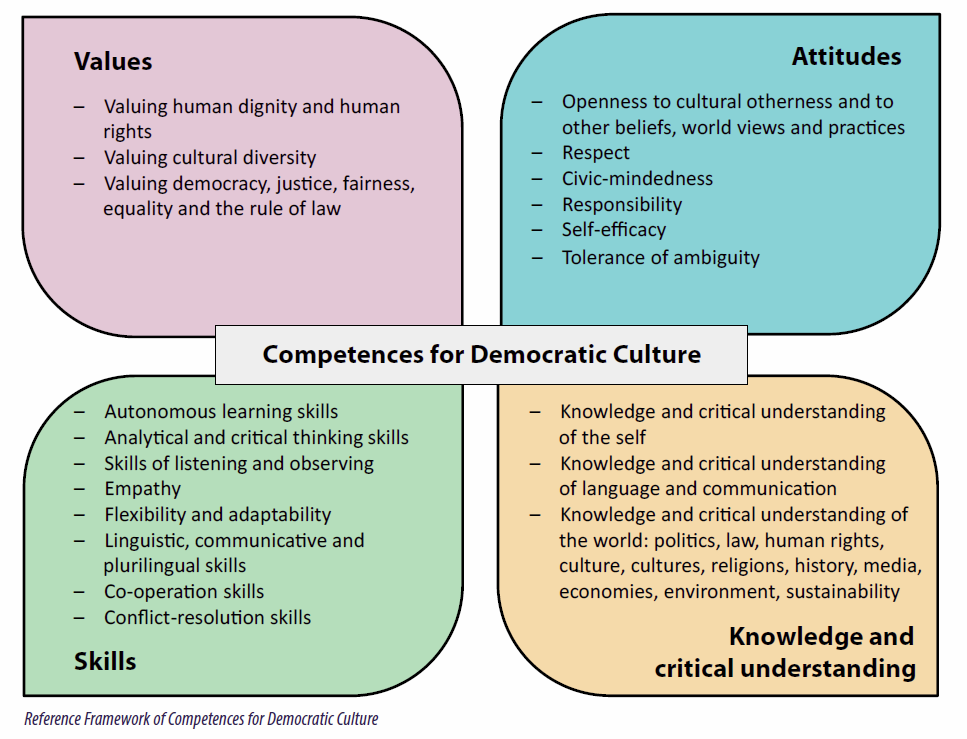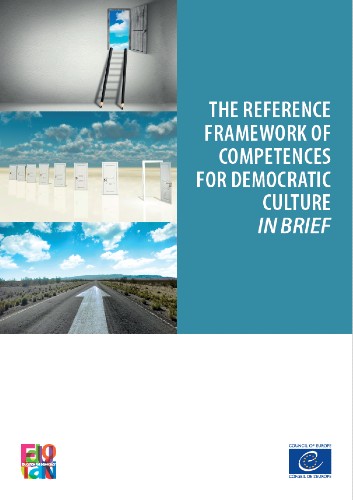About the Reference Framework of Competences for Democratic Culture
The Reference Framework of Competences for Democratic Culture (RFCDC) was unanimously approved by European ministers of education at their standing conference in Brussels in April 2016.
The Framework is a model of the competences that need to be acquired by learners if they are to participate effectively in a culture of democracy and live peacefully together with others in culturally diverse democratic societies. The Framework also contains descriptors for all of the competences in the model.

The Framework is presented in 3 volumes:

The first volume “The RFCDC: context, concepts and model” provides the background to the Framework and the previous work of the Council of Europe relevant to it, and then moves on to explain the concepts and theoretical assumptions underlying the Framework. These explanations are followed by a description of the model of competences. The information on the Framework concludes with a glossary of key terms.

The second volume focuses on the "Descriptors of competences for democratic culture" in greater detail. The descriptors are statements of concrete observable behaviour with a certain level of competence. 447 descriptors are classified in three levels of proficiency: basic, intermediate and advanced, including 135 key descriptors.

The third volume offers guidance on how the Framework can be implemented in education systems. It begins with three documents that discuss the use of the model and the descriptors in three stages of education planning, in the order they should take: developing curricula, planning pedagogy and designing assessment. These are followed by further documents which deal with the ways in which the Framework can be used in teacher education, and how it may be implemented using a “whole-school” approach. The following two documents (to be made available in early 2020) explore, respectively, the role of language and language education in promoting learners’ competences for democratic culture, and how the Framework can be implemented in higher education. The final document discusses how the Framework is relevant to addressing a pressing social and political issue, namely building resilience to radicalisation leading to violent extremism and terrorism.
The model in the Framework describes the competences in detail, while the descriptors provide a means of operationalising the competences for use by educationists. The model is not an imposition of an ideal but a conceptual organisation of the competences to which reference can be made by users of the Framework. Users will decide how to adapt and implement the Framework in their own contexts for their own purposes. The Framework describes possibilities and options in its use, and users of the Framework will need to make their own decisions about which options are appropriate in their own context.



